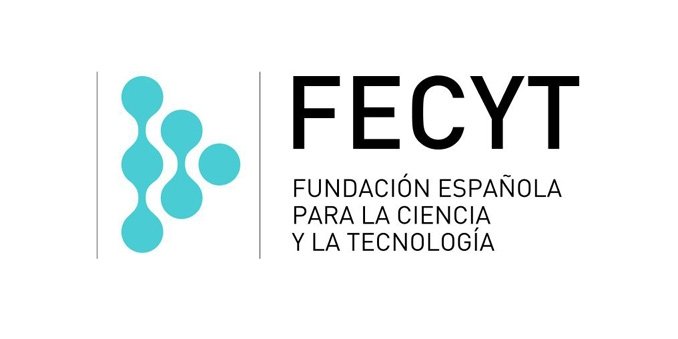How and when is self-efficacy related to entrepreneurial intentions: exploring the role of entrepreneurial outcome expectations and subjective norms
Resumen
This study investigates how and when general self-efficacy is related to entrepreneurial intentions. We propose that entrepreneurial outcome expectations function as a mediator in this relationship, while subjective norms act as a moderator. Using a sample of 1052 students from U.S. Public Universities, we tested a moderated mediation model. Results showed that general self-efficacy is positively related to entrepreneurial intentions through the mediating effect of entrepreneurial outcome expectations, and that this relationship is significantly positive for individuals with favourable subjective norms towards entrepreneurship, while significantly negative for individuals with less favourable subjective norms. These findings contribute to literatures on entrepreneurial intentions.
Keywords: entrepreneurial intentions, self-efficacy, entrepreneurial outcome expectations, subjective norms
Descargas
Citas
Aguinis, H., Ramani, R. S., & Alabduljader, N. (2018). What you see is what you get? Enhancing methodological transparency in management research. Academy of Management Annals, vol 12, nº 1, pp. 83–110.
Ajzen, I. (1991). The theory of planned behavior. Organizational Behavior and Human Decision Processes, vol. 50, nº 2, pp. 179–211.
Ajzen, I. (2002). Perceived behavioral control, self-efficacy, locus of control, and the theory of planned behavior. Journal of Applied Social Psychology, vol. 32, nº 4, pp. 665–683.
Ajzen, I. (2012). The theory of planned behavior. In P. A. M. Van Lange, A. W. Kruglanski, & E. T. Higgins (Eds.), The handbook of theories of social psychology, pp. 438–459. London: SAGE Publications.
Armitage, C. J., & Conner, M. (2001). Efficacy of the theory of planned behaviour: A meta-analytic review. British Journal of Social Psychology, vol. 40, nº 4, pp. 471–499.
Bagozzi, R. P. (1992). The self-regulation of attitudes, intentions, and behavior. Social Psychology Quarterly, vol. 55, nº 2, pp. 178-204.
Bandura, A. (1982). Self-efficacy mechanism in human agency. The American Psychologist, vol. 37, nº 2, pp. 122-147.
Bandura, A. (1997). Self-efficacy: The exercise of control. New York: Freeman and Co.
Bandura, A. (2001). Social cognitive theory: An agentic perspective. Annual Review of Psychology, vol. 52, nº 1, pp. 1-26.
Baum, J. R., & Locke, E. A. (2004). The relationship of entrepreneurial traits, skills, and motivation to subsequent venture growth. Journal of Applied Psychology, vol. 89, nº 4, pp. 587-598.
Bird, B. J. (1988). Implementing entrepreneurial ideas: The case for intention. Academy of Management Review, vol. 13, nº 3, pp. 442-453.
Bird, B. J. (1992). The operation of intentions in time: The emergence of the new venture. Entrepreneurship Theory and Practice, vol. 17, nº 1, pp. 11–20.
Bird, B., & Schjoedt, L. (2009). Entrepreneurial behavior: Its nature, scope, recent research, and agenda for future research. In A. Carsrud and M. Brännback (Eds.), Understanding the entrepreneurial mind: Opening the back box (pp. 327–358). Heidelberg: Springer.
Boyd, N. G., & Vozikis, G. S. (1994). The influence of self-efficacy on the development of entrepreneurial intentions and actions. Entrepreneurship Theory and Practice, vol. 18, nº 4, pp. 64-77.
Brännback, M., Carsrud, A. L., Kickul, J., & Krueger, N. (2007). “watch out, Issac!!” - re-constructing entrepreneurial intentions. Regional Frontiers of Entrepreneurship Research, vol. 14, nº 1, pp. 106–120.
Carr, J. C., & Sequeira, J. M. (2007). Prior family business exposure as intergenerational influence and entrepreneurial intent: a theory and planned behavior approach. Journal of Business Research, vol. 60, nº 10, pp. 1090-1098.
Chen, C. C., Greene, P. G., & Crick, A. (1998). Does self-efficacy distinguish entrepreneurs from managers? Journal of Business Venturing, vol. 13, nº 4, pp. 295-316.
Fayolle, A., Gailly, B., & Lassas‐Clerc, N. (2006). Assessing the impact of entrepreneurship education programmes: A new methodology. Journal of European Industrial Training, vol 30, nº 9, pp. 701–720.
Forbes, D. (2005). The effects of strategic decision making on entrepreneurial self-efficacy. Entrepreneurship Theory and Practice, vol. 29, nº 5, pp. 599-626.
Fox, J. (1997). Applied regression, linear models, and related methods. Sage, Thousand Oaks, CA.
Hayes, A. F. (2017). Introduction to mediation, moderation, and conditional process analysis: A regression-based approach (2nd Edition). New York, NY: The Guilford Press.
Heuer, A., & Liñán, F. (2013). Testing alternative measures of subjective norms in entrepreneurial intention models. International Journal of Entrepreneurship and Small Business, vol. 19, nº 1, pp. 35-50.
Hmieleski, K. M., & Baron, R. A. (2008). When does entrepreneurial self-efficacy enhance versus reduce firm performance? Strategic Entrepreneurship Journal, vol. 2, nº 1, pp. 57-72.
Hmieleski, K. M., & Corbett, A. C. (2008). The contrasting interaction effects of improvisational behavior with entrepreneurial self-efficacy on new venture performance and entrepreneur work satisfaction. Journal of Business Venturing, vol. 23, nº 4, pp. 482-496.
Kassean, H., Vanevenhoven, J., Liguori, E., & Winkel, D. E. (2015). Entrepreneurship education: a need for reflection, real-world experience and action. International Journal of Entrepreneurial Behavior & Research, vol. 21, nº 5, pp. 690–708.
Kautonen, T., Tornikoski, E. T., & Kibler, E. (2011). Entrepreneurial intentions in the third age: the impact of perceived age norms. Small Business Economics, vol. 37, nº 2, pp. 219–234.
Kautonen, T., van Gelderen, M., & Fink, M. (2015). Robustness of the theory of planned behavior in predicting entrepreneurial intentions and actions. Entrepreneurship Theory and Practice, vol. 39, nº 3, pp. 655–674.
Kolvereid, L. & Isaksen, E. (2006). New business start-up and subsequent entry into self-employment. Journal of Business Venturing, vol. 21, nº 6, pp. 866-885.
Krueger, N. F. (1993). The impact of prior entrepreneurial exposure on perceptions and new venture. Entrepreneurship Theory and Practice, vol. 18, nº 1, pp. 5-21.
Krueger, N. F. (2000). The cognitive infrastructure of opportunity emergence, Entrepreneurship Theory and Practice, vol. 24, nº 3, pp. 5-23.
Krueger, N. F., Reilly, M. D., & Carsrud, A. L. (2000). Competing models of entrepreneurial intentions. Journal of Business Venturing, vol. 15, nº 5, pp. 411-432.
Lee, S. H., & Wong, P. K. (2004). An exploratory study of technopreneurial intentions: A career anchor perspective. Journal of Business Venturing, vol. 19, nº 1, pp. 7-28.
Lent, R. W., & Brown, S. D. (2008). Social cognitive career theory and subjective wellbeing in the context of work. Journal of Career Assessment, vol. 16, nº 1, pp. 6–21.
Lent, R. W., Brown, S. D., & Hackett, G. (2002). Social cognitive career theory. Career Choice and Development, nº. 4, pp. 255-311.
Liguori, E. W., Bendickson, J. S., & McDowell, W. C. (2018). Revisiting entrepreneurial intentions: a social cognitive career theory approach. International Entrepreneurship and Management Journal, vol. 14, nº 1, pp. 67–78.
Liñán, F. (2004). Intention-based models of entrepreneurship education. Piccolla Impresa/Small Business, vol. 3, nº 1, pp. 11-35.
Liñán, F. (2008). Skill and value perceptions: how do they affect entrepreneurial intentions? International Entrepreneurship and Management Journal, vol. 4, nº 3, pp. 257–272.
Liñán, F., & Chen, Y.-W. (2009). Development and cross-cultural application of a specific instrument to measure entrepreneurial intentions. Entrepreneurship Theory and Practice, vol. 33, nº 3, pp. 593-617.
Liñán, F., & Fayolle, A. (2015). A systematic literature review on entrepreneurial intentions: citation, thematic analyses, and research agenda. International Entrepreneurship and Management Journal, vol. 11, nº 4, pp. 907-933.
Maresch, D., Harms, R., Kailer, N., & Wimmer-Wurm, B. (2016). The impact of entrepreneurship education on the entrepreneurial intention of students in science and engineering versus business studies university programs. Technological Forecasting and Social Change, nº 104, pp. 172–179.
Mauer, R., Eckerle, P., & Brettel, M. (2013). Adding missing parts to the intention puzzle in entrepreneurship education: entrepreneurial self-efficacy, its antecedents and their direct and mediated effect. In Smallbone, D., Leitão, J., Raposo, M., Welter, F. (Eds.). Frontiers in European Entrepreneurship Research, pp. 73-86. Cheltenham, UK: Edward Elgar.
Neck, H. M., & Corbett, A. C. (2018). The scholarship of teaching and learning entrepreneurship. Entrepreneurship Education and Pedagogy, vol. 1, nº 1, pp. 8-41.
Neck, H. M., & Greene, P. G. (2011). Entrepreneurship education: known worlds and new frontiers. Journal of Small Business Management, vol. 49, nº 1, pp. 55-70.
Neter, J., Kutner, M. H., Nachtsheim, C. J., & Wasserman, W. (1996). Applied linear statistical models. Irwin, Chicago.
Podsakoff, P. M., MacKenzie, S. B., & Podsakoff, N. P. (2012). Sources of method bias in social science research and recommendations on how to control It. Annual Review of Psychology, vol. 63, nº 1, pp. 539–569.
Preacher, K. J., Rucker, D. D., & Hayes, A. F. (2007). Addressing moderated mediation hypotheses: Theory, methods, and prescriptions. Multivariate Behavioral Research, vol. 42, nº 1, pp. 185–227.
Santos, S. C., Costa, S. F., Neumeyer, X. & Caetano, A. (2016). Bridging entrepreneurial cognition research and entrepreneurship education: What and how. In Michael Morris & Eric Liguori (Ed.) Annals of Entrepreneurship Education and Pedagogy – 2016, pp. 83-108. Edward Elgar Publishing.
Santos, S. C., Morris, M., Caetano, A., Costa, S. F. & Neumeyer, X. (2019). Team entrepreneurial competence: Multilevel effects on individual cognitive strategies. International Journal of Entrepreneurial Behavior and Research, doi.org/10.1108/IJEBR-03-2018-0126
Santos, S. C., Neumeyer, X., & Morris, M. H. (2018). Entrepreneurship education in a poverty context: An empowerment perspective. Journal of Small Business Management. doi.org/10.1111/jsbm.12485
Schwarzer, R., & Jerusalem, M. (1995). Generalized self-efficacy scale. In J. Weinman, S. Wright, & M. Johnston (Eds.) Measures in health psychology: A user’s portfolio. Causal and control beliefs, pp. 35-37. Windsor, England: NFER-NELSON.
Spagnoli, P., Santos, S. C. & Caetano, A. (2016). A contribution toward the adaptation and validation of the entrepreneurial self-efficacy scale in Italy and Portugal. Journal of Career Assessment, vol. 25, nº 4, pp. 670-687.
Spagnoli, P., Santos, S. C., & Caetano, A. (2017). Adaptation of the Attitude Toward Enterprise Test in the Italian high school and university contexts. Journal of Developmental Entrepreneurship, vol. 22, nº 1, doi: http://dx.doi.org/10.1142/S1084946717500054
Tabachnick, B. G., & Fidell, L. S. (2001). Using multivariate statistics. Allyn and Bacon, Boston.
Thompson, E.R. (2009). Individual entrepreneurial intent: Construct clarification and development of an internationally reliable metric. Entrepreneurship Theory and Practice, vol. 33, nº 3, pp. 669-694.
Vanevenhoven, J., & Liguori, E. (2013). The impact of entrepreneurship education: Introducing the Entrepreneurship Education Project. Journal of Small Business Management, vol. 51, nº 3, pp. 315–328.
Williams, L. J., Cote, J. A., & Buckley, M. R. (1989). Lack of method variance in self-reported affect and perceptions at work: Reality or artifact? Journal of Applied Psychology, vol. 74, nº 3, pp. 462-468.
Wilson, F., Kickul, J., & Marlino, D. (2007). Gender, entrepreneurial self-efficacy, and entrepreneurial career intentions: Implications for entrepreneurship education. Entrepreneurship Theory and Practice, vol. 31, nº 3, pp. 387–406.
Zhao, H., Seibert, S., & Hills, G. (2005). The mediating role of self-efficacy in the development of entrepreneurial intentions. Journal of Applied Psychology, vol. 90, n º6, pp. 1265–1272.
Descargas
Publicado
Cómo citar
Número
Sección
Licencia
- Los autores/as conservarán sus derechos de autor y garantizarán a la revista el derecho de primera publicación de su obra, el cuál estará simultáneamente sujeto a la Licencia de reconocimiento de Creative Commons que permite a terceros compartir la obra siempre que se indique su autor y su primera publicación esta revista.
- Los autores/as podrán adoptar otros acuerdos de licencia no exclusiva de distribución de la versión de la obra publicada (p. ej.: depositarla en un archivo telemático institucional o publicarla en un volumen monográfico) siempre que se indique la publicación inicial en esta revista.
- Se permite y recomienda a los autores/as difundir su obra a través de Internet (p. ej.: en archivos telemáticos institucionales o en su página web) antes y durante el proceso de envío, lo cual puede producir intercambios interesantes y aumentar las citas de la obra publicada. (Véase El efecto del acceso abierto).
La Revista de Estudios Empresariales. Segunda Época, utiliza PKP Preservation Network (PN).




























